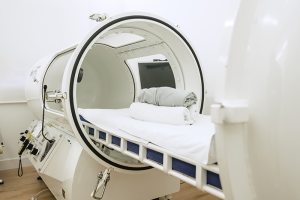Ambulatory infections, codes comments and endoscope reprocessing top April's regulatory roundup
Joint Commission, CDC partner on infections
Infection prevention // The Joint Commission and the Centers for Disease Control and Prevention (CDC) are collaborating on an initiative designed to adapt, enhance and disseminate CDC guidance related to infection prevention and control in ambulatory health care settings. The goal is to create model infection control plans and expand the reach, uptake and adoption of these and other infection prevention and control guidance materials to prevent infections in outpatient settings. The project, called ADOPT (Adaptation and Dissemination Outpatient Infection PrevenTion) Guidance, will focus on a variety of freestanding ambulatory settings and services, in collaboration with 12 outpatient-focused professional organizations and 10 ambulatory health care systems.
NFPA opens 2018 codes for public comment
Engineering // The first drafts of the 2018 editions of the National Fire Protection Association’s NFPA 101, Life Safety Code, and NFPA 99, Health Care Facilities Code, are now open for public comment, according to the American Society for Healthcare Engineering’s ASHE Insider newsletter. The society urged its members to review the drafts and submit their comments online before the May 16 deadline.
FDA reminds facilities to transition reprocessors
Infection prevention // The Food and Drug Administration (FDA) continues to recommend that hospitals and other facilities using automated endoscope reprocessors made by Custom Ultrasonics transition to alternative methods to reprocess flexible endoscopes as soon as possible, the agency said in a recent update. The FDA ordered Custom Ultrasonics to recall all of its automated endoscope reprocessors from health care facilities in November, citing violations that could result in an increased risk of infection. The company later submitted a recall strategy that the agency found inadequate, but had made no additional proposals to recall the reprocessors, FDA said in late February.
Physical environment among sentinel event causes
Patient safety // The physical environment was the fifth leading root cause for sentinel events, according to statistics recently released by the Joint Commission. It ranked lower than causes such as human factors, leadership and communication, but higher than causes such as care planning, medication use and information management. The Joint Commission reviewed a total of 936 sentinel events through the end of 2015.
Ventilators recall expanded to include power units
Biomedical // Dräger Medical expanded its December 2015 recall on the Dräger Evita V500 and Babylog VN500 ventilators to include the PS500 optional power supply units used on the products. The new software installed on the units failed to correct the issue of depleting the battery, which could cause the ventilators to shut down unexpectedly and may lead to patient injury or death. Dräger Medical says it will replace all affected PS500 power supply units.
ASHE, Joint Commission fire safety resources
Life safety // As part of a joint project, the American Society for Healthcare Engineering and the Joint Commission have released resources to help health care facilities comply with Joint Commission standard EC.02.03.05 on fire protection. The resources include examples of how to improve fire safety compliance and lays out the issues and risks associated with noncompliance.




